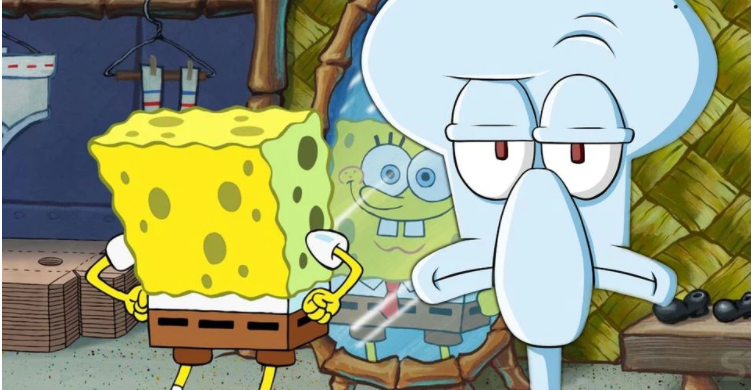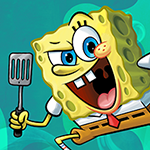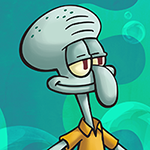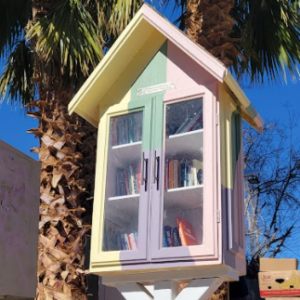
Revisiting SpongeBob SquarePants
My partner never got to watch SpongeBob much as a kid, so recently, we’ve been binge-watching the series. It felt so nostalgic, like being a kid again watching old episodes. I’m still laughing at the jokes and antics and seeing the scenes that have become memes.
It got me thinking about all the lessons we might have taken or missed from the show growing up. So, I thought it’d be fun to write about some of the lessons that stood out to me the most.
I found a lot so I quickly evolved the idea of writing a series as I went through the seasons, starting, of course, with season one.
I plan to write these articles in order based on the episode and season. However, the first lesson I wanted to share is shown in the title and is more generalized: Be SpongeBob, not Squidward.
This lesson seemed most notable to me after re-watching the entire first season of one of my favorite childhood cartoons. While it’s not a theme brought up in every episode, it kept popping into my head throughout many of the episodes.
SpongeBob
Traits

SpongeBob definitely goes overboard on things. There are absolutely moments where you sympathize with the other characters who have to deal with some of his shenanigans or when he steps far past their boundaries or causes harm to others. But, aside from this, SpongeBob is otherwise a great character with many commendable traits that ultimately serve as a good role model for kids and adults alike.
Positive Takeaways
SpongeBob is friendly and open, highly imaginative, thoughtful, helpful, and kind, and is *generally* considerate. (Though this wavers depending on the episode and character he interacts with.) He’s a devoted friend and a hard worker. He’s deeply passionate about what he cares for, like fry cooking, jelly fishing, karate, and trying to be a good friend (and being a good noodle).
Spongebob is also an active, caring member of his community, expressing an abundance of empathy for others. He creates his own fun, finds the bright side in any situation, and tries to find solutions to problems he faces. And he’s comfortable with being himself and showing his emotions. This includes crying when he’s upset or overwhelmed, which is essential for kids to see.
At the heart of things, Spongebob isn’t afraid to fail. However, he might get stumped sometimes when dealing with something particularly overwhelming and frustrating. (Don’t we all?)
All this makes him incredibly relatable, perhaps even inspirational, to people of all ages on many levels.
Neurodivergent Representation Through SpongeBob SquarePants
Arguably, SpongeBob’s character exhibits neurodivergence in two ways.
ADHD
For one, many of his characteristics relate to ADHD; he is almost constantly moving and arguably “stims” a lot throughout the show. (Stimming is self-stimulatory behavior, including the repetition of physical movements, sounds, words, or moving objects.) SpongeBob tends to be all over the place, often forgetful, easily distracted, and frequently hyper-fixates on things. These are just a few of these related characteristics.
Autism
Furthermore, there are a lot of fan theories that SpongeBob is on the spectrum. While it appears this wasn’t intentional by the creators, he exhibits a lot of characteristics of Autism Spectrum Disorder. Moreover, Autistic children frequently connect with and relate to him.
In a 2017 interview with the cast, Joshua Stone (the interviewer) brought up the topic at one point. Tom Kenny, SpongeBob’s voice actor, shared that a lot of parents tell him that the character resonated greatly with their autistic children.
“I think they like that character. He doesn’t have a filter, he does what he wants. It comes up a lot actually, the Autistic thing comes up, like at comic-cons and things like that,” Kenny said. “I’ve had people say ‘I didn’t know if my kids understood words until I heard him laughing at a SpongeBob episode. Then I realized it.’ It’s really heavy, like mind-blowing stuff where you’re like wow, this thing, this product, this show that’s just trying to be funny.”
* I would like to note that in that interview, Tom Kenny states, “….obviously we’re all Autistic to a degree,” and I wanted to take a moment to mention that the Autism community generally finds offense to that statement. This is an observation based on multiple years of participating in different neurodivergent/ASD pages, groups, and other Autism-related platforms and communities. Per the autism community, everyone might have certain traits or mannerisms similar or related to Autism Spectrum Disorder, but only once above a certain threshold of traits does one begin to fall under the spectrum. Okay, back to the article now! *
How This Helps
Whether or not SpongeBob is canonically on the spectrum or even has ADHD, he positively impacts children (and adults) who are. This is for two main reasons.
One, by providing a sense of representation, even if unintentional, by showing a character exhibiting traits relatable to neurodivergent people. This gives them a feeling of being seen and accepted. SpongeBob may even act as a role model for children who see his positive traits as characteristics they want to work on or aspire to have.
And two, while he can get under people’s skin – or fish scales, I should say? – he is loved dearly by his friends in Bikini Bottom.
For people who might question their worthiness of love, SpongeBob has the potential to help them realize their worth by showing how otherwise patient, forgiving, and understanding some of the other characters are in the show – for the most part. But, on the other side of that same coin, he also shows how certain traits can negatively impact the people around us or cause harm. We also see the negative traits in other characters that show other people are flawed and have toxic characteristics.
(Article continues after the ad)
Please follow our fantastic site sponsors! They make content like this possible! 🙂
Squidward

Now, that leads us to Squidward, the character of the show who’s the obvious antithesis of SpongeBob.
I’ll say this really quickly: I sympathize with Squidward trying to achieve his artistic goals or having to deal with some of his experiences due to SpongeBob’s actions. Aside from that, though, Squidward serves as a role model for the type of person you don’t want to become or how to behave. I understand that that isn’t some big revelation or anything. It’s relatively obvious. I think that’s why it stood out to me as an important lesson to take away.
Positive and Relatable Traits
We can relate to the concepts of having the desire to achieve our dreams, dealing with annoying neighbors, or having people who frequently push our buttons or cross our boundaries. We can even relate to him on a personal experience level if you’ve ever worked a service industry job or one dealing with the general public.
Hell, there’s even a later episode where Squidward and SpongeBob go on strike, and Squidward actively protests for workers’ rights. He even talks about tearing down oppressive establishments. Honestly, I had forgotten that episode and was like, “damn Squidward, tell ‘em about that class solidarity.” That said, it’s obvious that Squidward’s motivations are more about him than anyone else.
These few positive or relatable characteristics are not why I’m saying not to be a Squidward. Instead, it’s his overwhelming number of negative traits encompassing his overall character.
Negative Traits
Squidward arguably acts narcissistic and manipulative and doesn’t care about anyone but himself. He’s mean, cruel, and a bully. And not because he doesn’t want to play with SpongeBob and Patrick. He’s not obligated to play with them.
While SpongeBob is incessant, Squidward is also bad-natured about anything to do with SpongeBob in general. He consistently causes many of his problems because he becomes obsessive about his anger related to SpongeBob. (For example, the episode where he runs back and forth between the Krusty Krab, trying to have a day off, but keeps imagining SpongeBob destroying the restaurant, only to find that the closed sign was up all day.)
He’s often aggressive, impatient, unforgiving, self-centered, and self-serving. He acts negatively about everything unless it brings him joy or causes harm to others, and he is generally unkind.
Even with other characters in the show, he also acts very self-absorbed and superior to everyone else. He talks down to everyone, rarely listens to others or takes advice, has no patience for anyone or anything, makes fun of people to their faces, takes advantage of others when possible, and enjoys seeing others hurt or embarrassed. His traits are exacerbated when dealing with SpongeBob, but Squidward actively treats everyone with contempt or even disgust. All of this far outweighs his few redeeming qualities.
Remember the ‘April Fools’ episode in which Squidward actually severely hurts and embarrasses SpongeBob because he’s annoyed at SB’s harmless pranks? As SB is thrown around the Krusty Krab in a set-up meant to cause him pain, Squidward rolls on the floor hysterically laughing. It actually made me sad to watch it as an adult, even though these are just cartoon characters. It reminds me of those “prank” YouTubers/TikTokers who physically hurt or otherwise traumatize people while filming these “pranks.”
Be SpongeBob, not Squidward.
So I think a great takeaway from the contrast in these two characters is that when we’re interacting with other people or going about our day or trying to become a better person, we should try to channel the positive traits that we see in SpongeBob and resist any of the negative characteristics Squidward shows in similar situations.
Be SpongeBob, not Squidward.
–
I’m still working on part 2 of this article series of Lessons From Bikini Bottom, so stay tuned for whenever that gets done!
Thank you to our supporters and sponsors!
As always, we want to thank our Patreon’ Cultivator’ supporters and sponsors who help make content like this possible.
The following Patron(s) supported the production of this article:
Crystal Gropp
The following sponsors supported the production of this article:
Viva La Compost & LunaKai Lash




Pingback: Spongebob Squidward - Lady Squidward Encyclopedia SpongeBobia Fandom